Twisted Sister's Jay Jay French takes us through his 6 favorite guitars from his collection
The heavy metal icon delves into his love affair with the Les Paul, his transition to Guild Guitars and his affinity for the “pointy” guitars of the 1980s
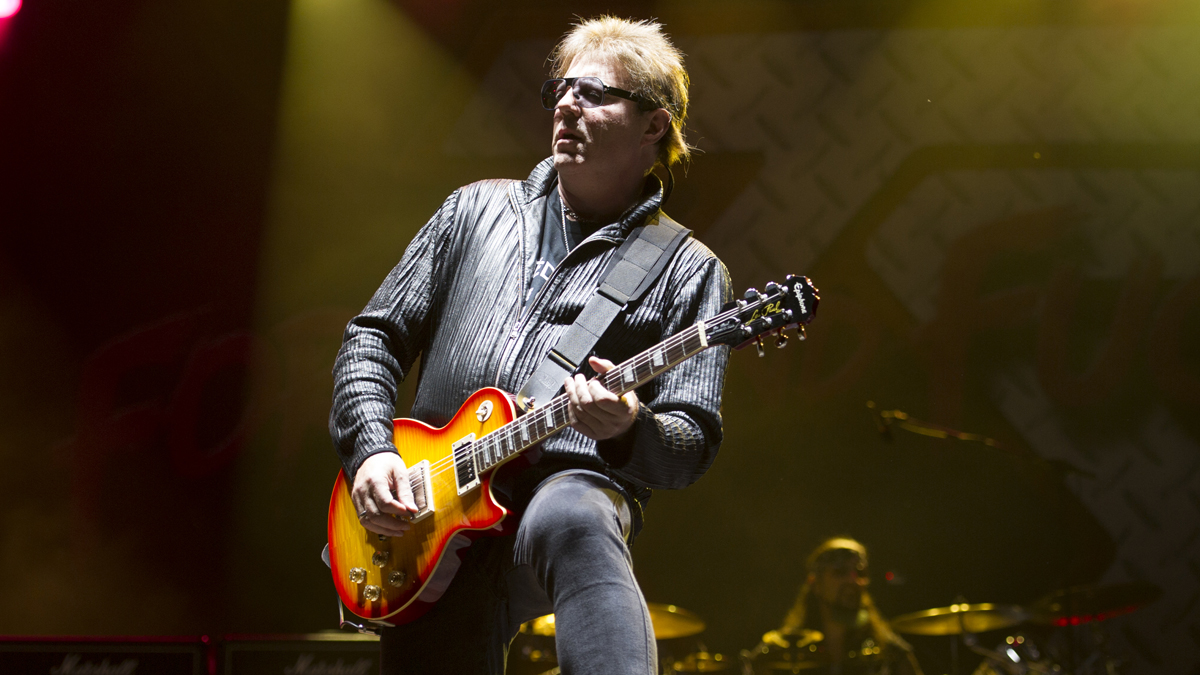
All the latest guitar news, interviews, lessons, reviews, deals and more, direct to your inbox!
You are now subscribed
Your newsletter sign-up was successful
As guitarist, manager and founding member of heavy metal outfit Twisted Sister, Jay Jay French became a household name throughout the '80s, going from bar band regular with the group to touring the world with hair metal anthems such as We’re Not Gonna Take It and I Wanna Rock.
After the band’s breakup in 2016 following the death of drummer AJ Pero, the guitar icon took to motivational speaking, producing his podcast The French Connection and writing his long-awaited part-memoir, part-business primer, Twisted Business: Lessons Learned from My Life in Rock ‘N’ Roll.
Taking a break from touring his new book around the US, the vintage guitar expert took us through six of his favorite guitars from his extensive collection, highlighting the six-string stalwarts that have defined his axe-collecting career.
Demonstrating just how vast his collection is, French explains, “I’ve sold off a lot of guitars in the past two years. But, you know how when you eat a bowl of pasta and you keep it eating it, it looks like you haven’t eaten any? The endless pasta bowl. I have an endless guitar collection; I keep selling them and then they have sex at night and more guitars show up.”
From super-rare '50s-era Les Pauls to wild custom Kramers, read on to find out about six of Jay Jay French's favorite electric guitars.
1952 Gibson Les Paul Goldtop
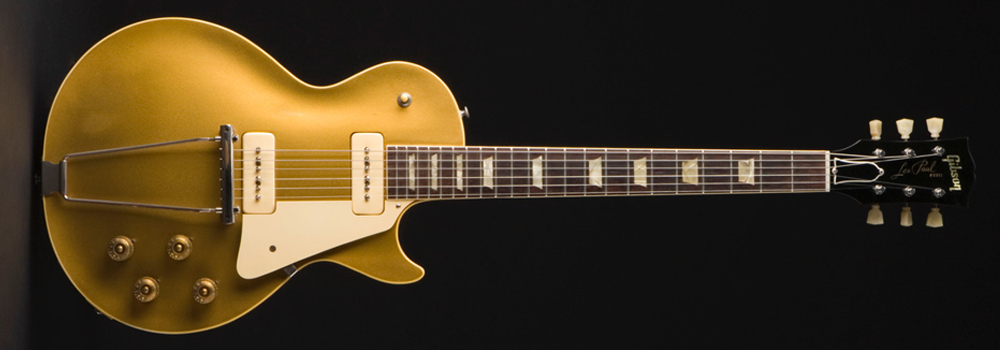
"I can’t speak for all guitar players, but I can tell you that I was influenced by guitars on album covers. So, when I saw this album cover [pulls out Freddie King’s Let’s Hide Away and Dance Away with Freddy King (1961)] I went, ‘What is that? I've got to own that!’ But I didn’t have the money to own that for a while. I just loved the way they looked.
"Gibson started making them in 1952 and I was born that same year, so even though a 1952 Les Paul is a rather unplayable instrument, if you’re a historian and you care about the stuff, you want to own that stuff. So, I was looking for a ’52 since its first year of issue and I found what I consider to be the most perfect ’52 I have ever seen. I mean, dead mint. Perfect."
All the latest guitar news, interviews, lessons, reviews, deals and more, direct to your inbox!
Gibson Les Paul Junior
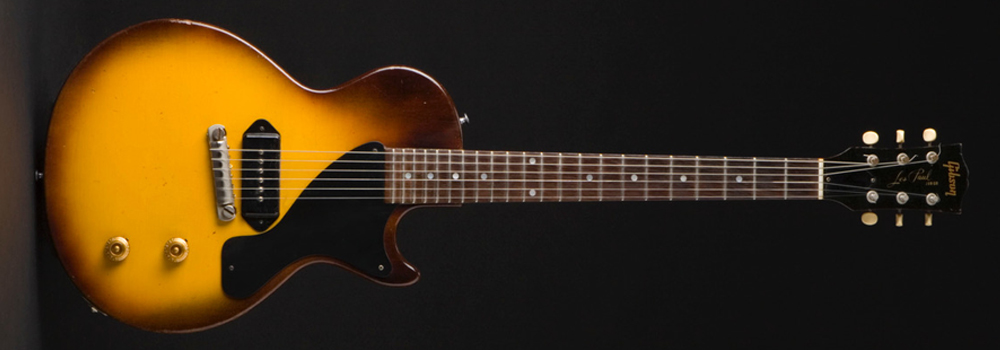
"When Twisted Sister first started in the bars in 1973, I played the '52 Goldtop for a while and I played the Junior. The Junior was the first Les Paul I ever bought. It was cheap, I bought it in 1970 and I own a lot of them. I love them.
"They were very inexpensive when they were manufactured, and they were the beginner guitar. They’re not artistically gorgeous, but they just happen to be amazing tone machines.
"I think Leslie West from Mountain really made a statement with the solo on Mississippi Queen. That’s a Junior cranked up to 10 through a bunch of stacked Sunn 1000S amplifiers.
"I own three of these: two sunbursts and a TV Junior."
1957 Gibson Les Paul Goldtop Standard
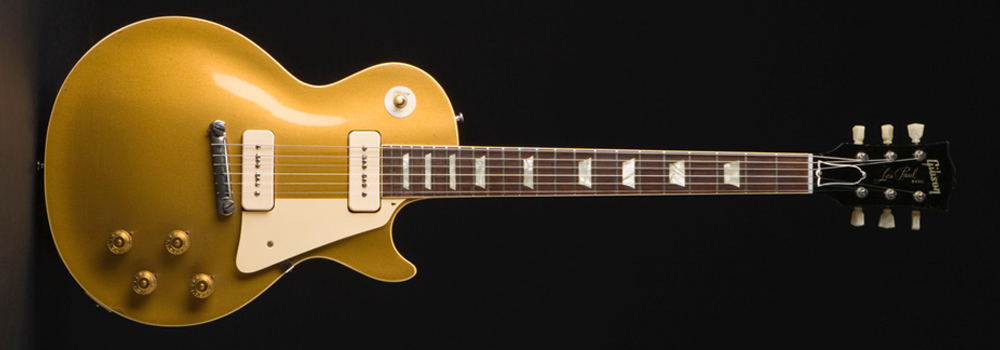
"The Les Paul model went through a lot of different incarnations and colors, and every year brought an improvement. In ’52, the bridge was impossible to play so they took it off. In late ’53, ’54, ’55, they didn’t change much, but by ’56 they realized that the tailpiece wasn’t allowing for the intonation of the strings correctly, so they put a Tune-O-Matic bridge on the ’56 Goldtops.
"In early ’57, they changed the name from the Goldtop Model to the Goldtop Standard, and starting around March they put humbucking pickups in. Except, I have P-90 pickups, which means it was made in the first two months of 1957. I have a transition guitar.
"My ’57 only shows up when a friend comes over and I go, ‘Look at this!’ because it’s worth a lot and beautiful."
Kramer "Love is for Suckers" Custom
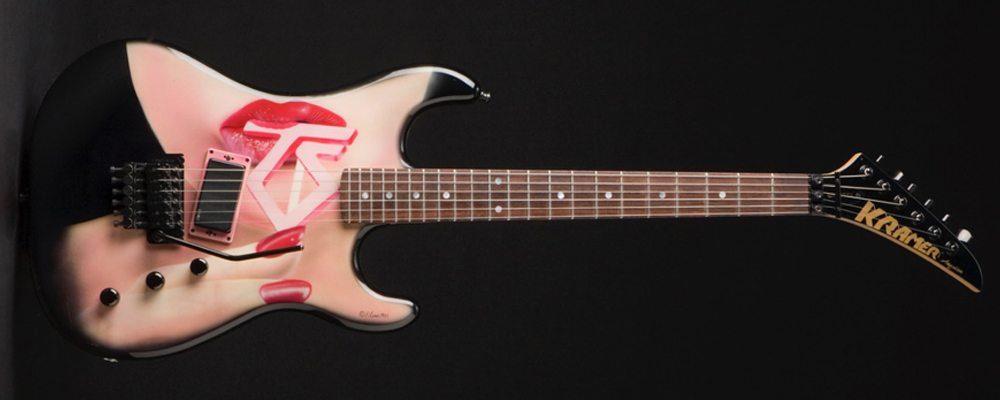
"When Love is for Suckers came out, I had Kramer do a Love is for Suckers cover guitar. The irony of it is, if you look at the amount of time I spent playing all these guitars, the Love is for Suckers guitar probably got the least amount of time, because the tour was aborted after two weeks and then it went into storage.
"I’m not a Strat guy, I’m a Gibson guy. But back in the late '80s, everything was pointy guitars or Strat-style guitars. There was a point where Gibson was out of favor and people don’t remember this. Gibson should be kissing Slash’s ass for saving the Les Paul!”
1985 Guild "Come Out and Play" Custom
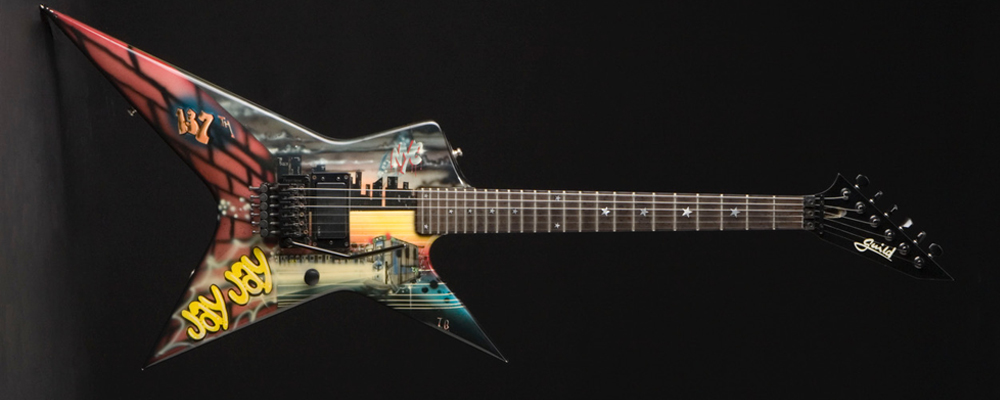
"I went to my first NAMM show in 1984 and Twisted Sister was gigantic at this point. I walked into the Marshall area, and they were so happy with us; they gave us six Marshall stacks, and Marshall is famous for not giving anybody anything!
"Then I go to the Gibson booth – I had been playing Les Pauls since 1970 – and I walk in with a hit record. I walk in going, ‘Here I am, lay it on me.’
"They go to me, ‘Where do you live?’ I tell them Manhattan. They say, ‘Do you where 48th Street is?’ I say, 'Yeah,' and they go, ‘Well, go there and buy a guitar!’
"'Fuck you, are you fucking serious?'
"I stormed out of the booth, and I went walking down a different aisle. I ended up bumping into a friend of mine who introduced me to the president of Guild Guitars. He asked me why I was so angry, and I go, ‘Can you believe Gibson?' He replies, ‘Gibson told you that? Welcome to Guild!’ All of a sudden, I’m a Guild player.
"So, by the time Come Out and Play came out, I needed a guitar that could be painted by the graffiti guys who also did the cover of the album. They gave me that very pointy guitar and I played it for the whole tour."
Ibanez Destroyer
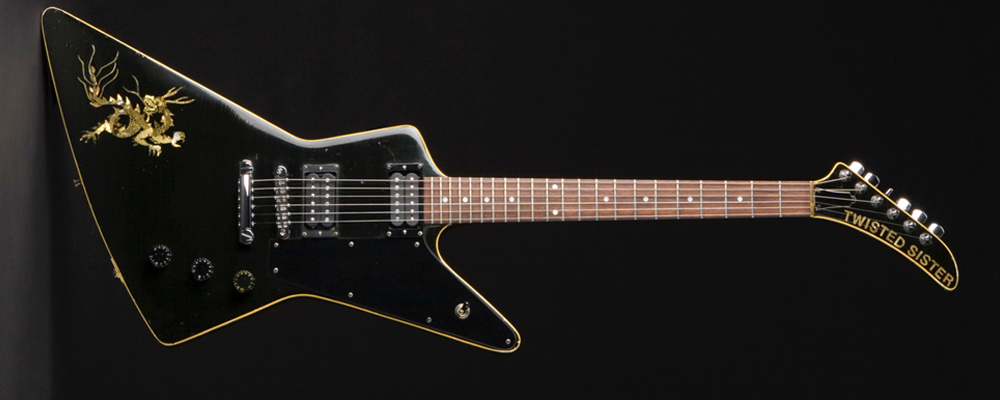
"That guitar was an Ibanez Destroyer originally. Ibanez did a perfect wood copy of the 1958 Gibson Korina Explorer. Ibanez brought 400 of these models into the United States and they were perfect reproductions.
"The Korina Explorer is the single most valuable and collectible guitar today because there are only 18 known to exist. If you own one, they are worth about $700,000. I believe Billy Gibbons owns one, I believe Joe Bonamassa owns one and I think Eric Clapton owned one.
"Ibanez made this perfect version, and they were $400. So, me and Eddie Ojeda both got one. I gave it to a guy to make it black, add a dragon and put the name of the band on the headstock, and this became my stage guitar for years in the bars."
- Twisted Business: Lessons Learned from My Life in Rock ‘N’ Roll by Jay Jay French and Steve Farber is out now.
